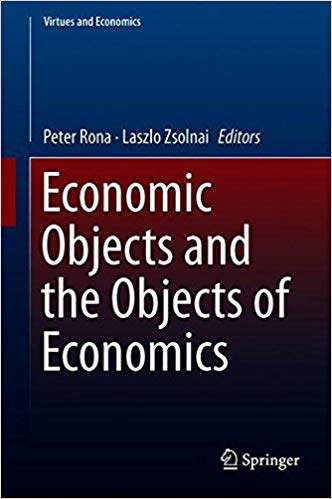Peter Rona & Laszlo Zsolnai (Eds.): Economic Objects and the Objects of Economics. Springer, 2018. (This book may be available at https://www.springer.com/us/book/9783319945286)

This book examines the nature of economic objects that form the subject matter of economics, and studies how they resemble or differ from the objects studied by the natural sciences. It explores the question of whether economic objects created by modern economics sufficiently represent economic reality, and confronts the question whether tools, techniques and the methodology borrowed from the natural sciences are appropriate for the analysis of economic reality. It demonstrates the unsustainability of rational choice theory. It looks at economic agents, such as individuals, groups, legally constituted entities, algorithms, or robots, how they function and how they are represented in economics. The volume further examines the extent, if any, that mathematics can represent the objects of the economy, such as supply and demand, equilibrium, marginal utility, or the money supply as they actually occur in the economy, and as they are represented in economics. Finally, the volume explores whether the subject matter of economics – however defined – is the proper subject of theoretical knowledge, whether economics is an analytic or a descriptive discipline, or if it is more properly seen in the domain of practical reason. Specifically, the book looks at the importance and the ambiguity of the ontology of modern economics, temporality, reflexivity, the question of incommensurability, and their implications for economic policy.